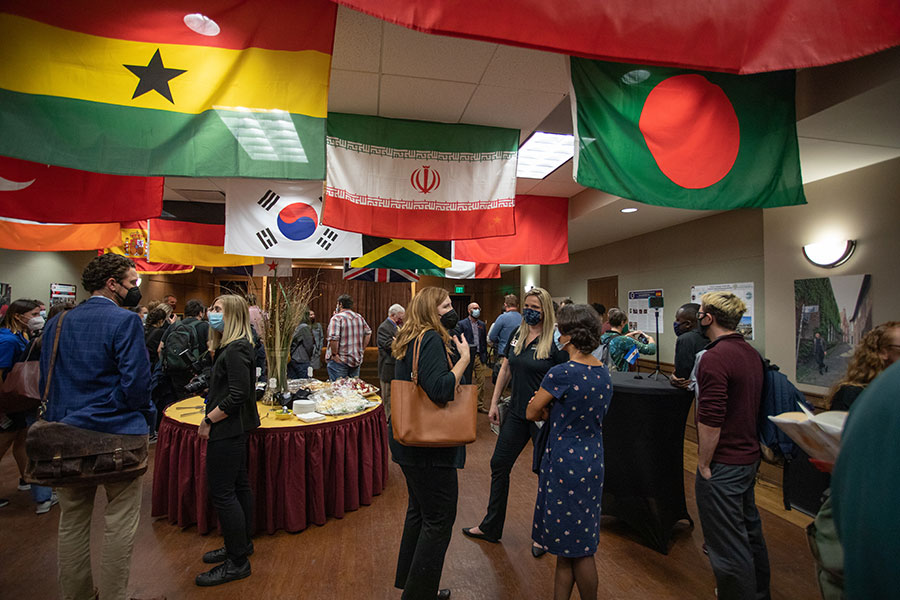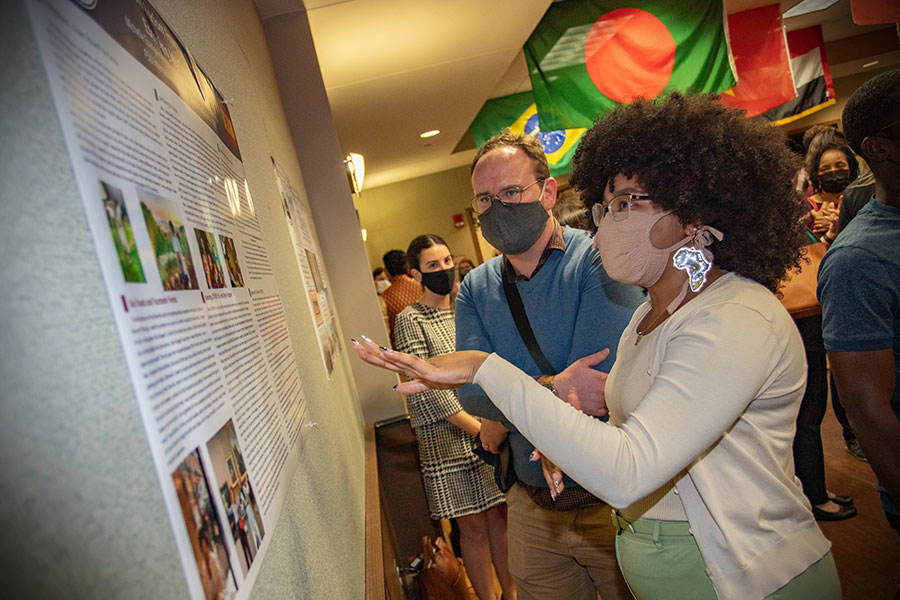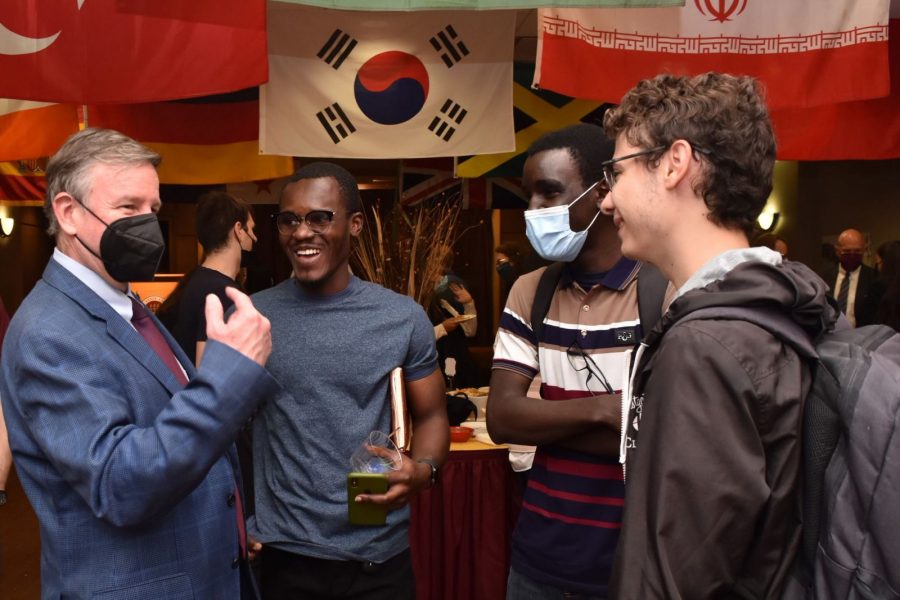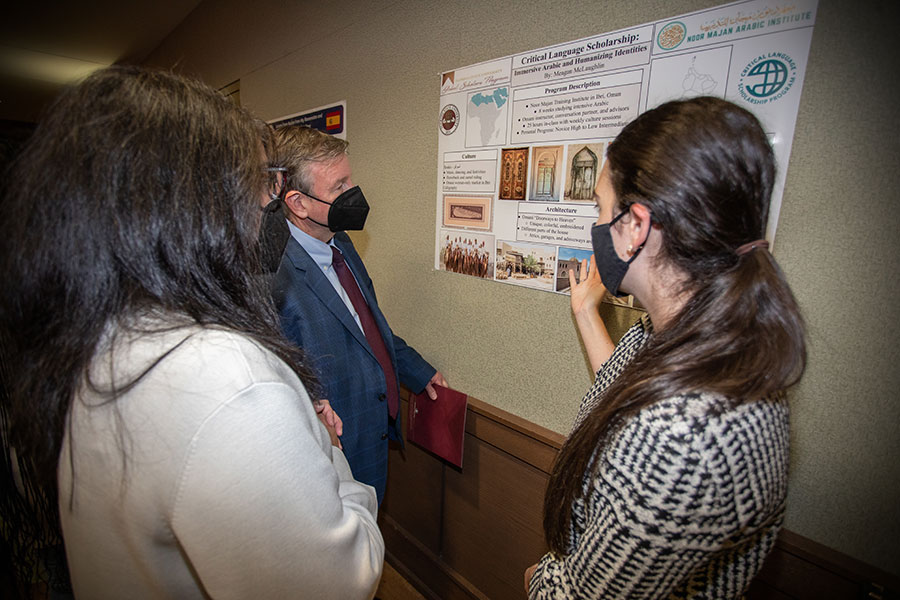
Florida State University President Richard McCullough led festivities Tuesday at the opening reception for International Education Month at the Global and Multicultural Engagement Building.
From the international flags hanging from the ceiling inside the auditorium to the selection of foods from around the globe, it was an international affair as students, staff and faculty gathered to ring in the monthlong celebration of internationalization at FSU.
McCullough opened his remarks by welcoming the crowd with a “good day” in Italian and French before joking that was the extent of his knowledge of foreign languages. He went on to tout the value of a strong international presence at FSU and the university’s success in internationalization.
“Providing opportunities for global engagement and nurturing a rich multicultural environment are key to both student and faculty success,” he said. “FSU is pretty good at it. Florida State’s excellence in integrating international education throughout all facets of the university has received quite a bit of national recognition over the past few years — including a Platinum Award from the APLU and the Senator Paul Simon Award for Campus Internationalization.”
The reception was followed by the Going Global Showcase in which students shared highlights of their international experiences with countries from around the globe.
Meagan McLaughlin, a senior from Tampa, Florida, is working on dual degrees in international affairs and political science. Her presentation centered on her work studying Arabic through the Noor Majan Training Institute in Ibri, Oman.
McLaughlin’s program was conducted virtually as travel restrictions prevented travel to Oman. Her program included eight weeks of intensive Arabic study and 25 hours of in-class culture sessions per week.
McLaughlin said she will be pursuing travel to Morocco to further her Arabic education but added that there is no substitute for the face-to-face interaction she got through her experience.
“You can learn in the classroom and memorize things for a test but there is no substitute for speaking with native Arabic speakers,” she said. “They are not going to sugarcoat it; they are going to tell you here’s is how you actually say it and here’s how you would use this phrase in conversation.”







